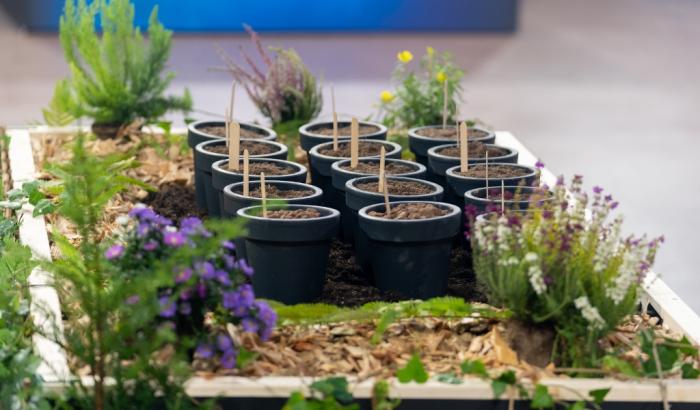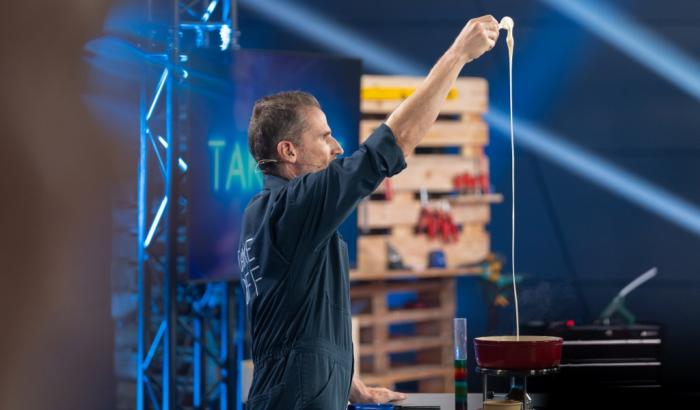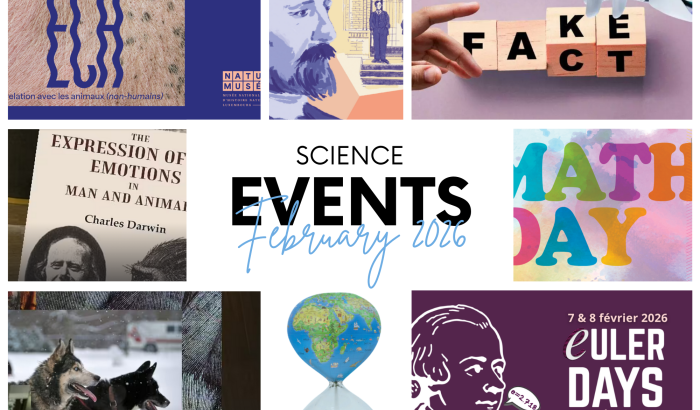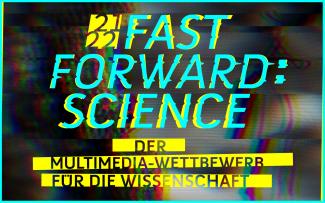
https://fastforwardscience.de/
Whether student, postdoc, vlogger or scientist: the main thing is to be creative!
...and of course, enthusiastic about science. As part of the Fast Forward Science competition, the FNR organised a web video training, a so-called Hackathon, in April. Participants were supported by Youtubers and science communicators in creating their own video, which they could then submit to the competition.
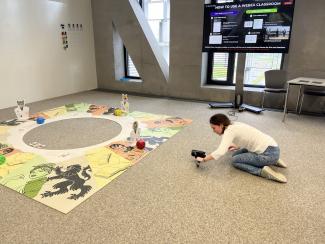
Infobox
Fast Forward Science - passion for research, innovative multimedia formats and communication
Fast Forward Science - The Multimedia Competition for Science honours people who are not only passionate about science themselves, but who can also inspire others to do the same. Awards are given for social media contributions on scientific topics that show current research, are entertaining despite hard facts and offer the necessary "aha" effect. The competition is a joint project of Wissenschaft im Dialog, the German organisation for science and science communication, and Stiftverband, the association of foundations in the fields of education, science and innovation. As a long-standing partner of Wissenschaft im Dialog, the FNR was also involved.
And the winners were...
This year, unfortunately, no luxembourgish scientists were among the winners - but it’s only fair to say that the competition was very strong. Nevertheless, it is definitely worth taking a look at their submissions:
In a YouTube video, Joshgun Sirajzade, a postdoctoral researcher at the University of Luxembourg, explains the subfields of artificial intelligence:
A collaboration between Maria Ruiz-Castell of the Luxembourg Institute of Health and Jesus Sanchez, scientist and cartoonist, has resulted in an animated YouTube video about external causes for modern diseases such as diabetes, high blood pressure and obesity.
But now for the winners: In each of the five categories, the best of over 200 submissions from YouTube videos, TikToks, Instagram stories, podcasts and other online formats won a prize of 3,000 euros. Here are the winning projects and the creative minds behind them:
Young Scientist Award
The first place of the award for those who are still at the beginning of their research career was won by the tiktoker @dieWissenschaftlerin. Her goal: to make the everydayness of science visible. In doing so, she answers questions like: What scientific discoveries have recently been made? What does it mean to be a scientist in 2022? Behind @dieWissenschaflterin is PhD student Amelie Reigl, 27, who is currently writing her doctoral thesis and doing science communication on TikTok and Instagram on the side.
@diewissenschaftlerin Gefällt dir die neue Rubrik? Mach das Herz rot ❤️ Mehr gibts auf IG! #AmR #Paper #wissenschat #news #frosch ♬ Originalton - dieWissenschaftlerin
Scientist & Research Institution Award
How do blood oranges turn red? And what does that have to do with the climate? With her YouTube video, the plant biologist won the award for scientists with doctorates. Using blood oranges, Eva Koch explains the molecular process of gene expression and masters the challenge of making complex topics understandable. On her YouTube channel, you can also find many other exciting explanatory videos on the complex world of plants.
Tandem Award
The Tandem Award, which honours cooperations between media experts and scientists, was won by the group from the YouTube channel Breaking Lab. In their video, they asked Prof. Dirk Brockmann from the Robert Koch Institute why studies that subsequently turn out to be faulty or even wrong can be published. They also clarify what the Institute for Faecal Science is, what so-called "predatory journals" are and why in the end, as always, it's all about money!
Winner of the Audio Special
Mushroom lamps and houses made of living materials: what sounds like crazy artists' ideas and science fiction is now already everyday life in various research laboratories. In the podcast BIOTOP! from the BIOTOPIA Natural History Museum in Bavaria, researchers and a curator discuss a future in which architecture, nature, and technology merge.
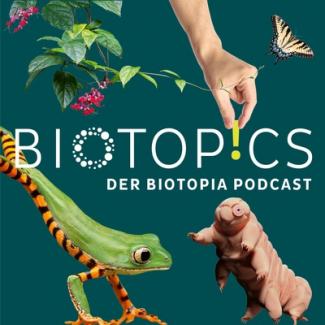
Winner of the Open Box Special
Winner of the Special Award Open Box is also a very special exhibition: everyone can participate and co-create. "Travel Stones" is a virtual collection of favourite stones found somewhere in the world. Here, one not only learns the personal story that the finder associates with it, but also the history of the geology of the stone. Behind this exhibition is focusTerra, the Earth & Science Discovery Center of ETH Zurich.
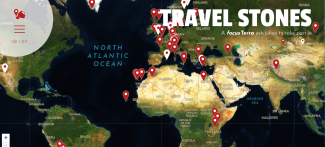
All submissions and general information about the Fast Forward Science Award can be found at www.fastforwardscience.de. Anyone who feels like creatively learning more and maybe incidentally winning a nice prize, can rejoice: there will be another hackathon and competition next year. All information will be published on science.lu https://science.lu/de and www.fnr.lu. So, it's worth checking back regularly.
Author: Lucie Zeches (FNR)
Editors: Michèle Weber (FNR), Jean-Paul Bertemes (FNR)

